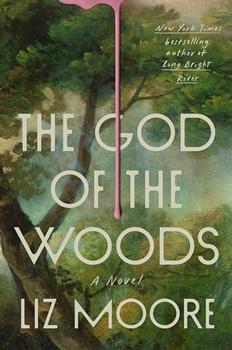Summary | Excerpt | Reading Guide | Reviews | Readalikes | Genres & Themes | Author Bio

A Novel of Hannibal
by David Anthony Durham
"You have yet to be attacked," Flaminius said. "It would be unwise to conclude a course of action prior to understanding the nature of the conflict." He assured the Iberian that in any event the Saguntines should return to Iberia in good spirits. No nation had ever regretted, or would ever regret, making a friend of Rome.
Having received this answer, Gramini retired and was soon making the arrangements for his return voyage. The Senate, for their part, did engage with the questions the Iberian had posed, in depth, in heated debate, that afternoon and all of the next. They agreed to send a messenger to this Carthaginian, Hannibal Barca. Let his cage get a good rattling. Let him remember the power of Rome and act accordingly. Beyond this, however, they could come to no firm consensus. They had other foreign issues to deal with, in Gaul and Illyria. The resolution of this affair with Carthage would have to wait.
Each afternoon since arriving in Iberia two weeks earlier, the youngest of the Barca brothers, Mago, had taken a long, vigorous ride through the countryside. On returning each afternoon he paused at the same vantage point and stared at the physical manifestation of his family's legacy. New Carthage was breathtaking. It sat at the far end of a long isthmus, like an island tacked to the continent by an arm of the land that refused to let go. From a distance its walls rose straight up out of the water on three sides, only that narrow stretch of earth connecting it to the continent. The harbor carved an almost perfect circle around the city, with fingers of jutting rock that all but closed its mouth. Two thirds of its water sank into a blue-black no different from the deep water offshore; the other third, on the south side of the city, shone a wonderful turquoise blue, lit from below by a shallow bed of rock and coral that caught the sun like the inside of an oyster shell.
The fifteenth time he took in this view, he knew something had changed. It was a minute detail and he took a moment to spot it: The flag normally flapping above the citadel had been pulled in. No longer did the red standard of campaign snap in the breeze. Now, even as he watched, a new flag climbed into position. It shivered, curled, trembled, and never stood out clearly, but he knew what it was: the Lion of Carthage. His family's symbol. It meant his brothers had returned from the insurrection they had gone to put down in the north. Messengers had brought word of the army's approach earlier in the week, but they must have made better time than anticipated.
A rider sent out to find him met him near the southern gates to the fortress. Hannibal asked that he come without hesitation, the messenger said. When Mago dismounted and headed toward the palace the man said, "Not there. Please follow me."
The walk took a further few minutes. The messenger led him at a trot across the main courtyard, down several flights of marble stairs, through a series of tunnels, and then up a sloping ramp onto the wall itself. Beyond it, Mago caught sight of the returning army, coming in from the northern approach. His steps slowed as he took it in.
The long, wide column flowed over the rolling landscape, receding into the distance and still visible on the farthest ridge of the horizon. The infantry marched in loose formation, in their respective companies and tribal affiliations. The cavalry rode out to either side of the army. They circled and wheeled and galloped in short bursts, as if they were herdsmen at work with a great flock. The elephants strode in a similar deployment but spaced at larger intervals. He could see the nearest of them in detail. They were of the African breed, so their drivers straddled them just behind their ears. The riders' heads and torsos swayed with the slow rhythm of the creatures' strides. They talked to their mounts and smacked them with rods, but these seemed automatic gestures, for the creatures saw the fortress and could already smell the feed waiting for them.
Excerpted from Pride of Carthage by David Anthony Durham Copyright © 2005 by David Durham. Excerpted by permission of Doubleday, a division of Random House, Inc. All rights reserved. No part of this excerpt may be reproduced or reprinted without permission in writing from the publisher.




Your guide toexceptional books
BookBrowse seeks out and recommends the best in contemporary fiction and nonfiction—books that not only engage and entertain but also deepen our understanding of ourselves and the world around us.